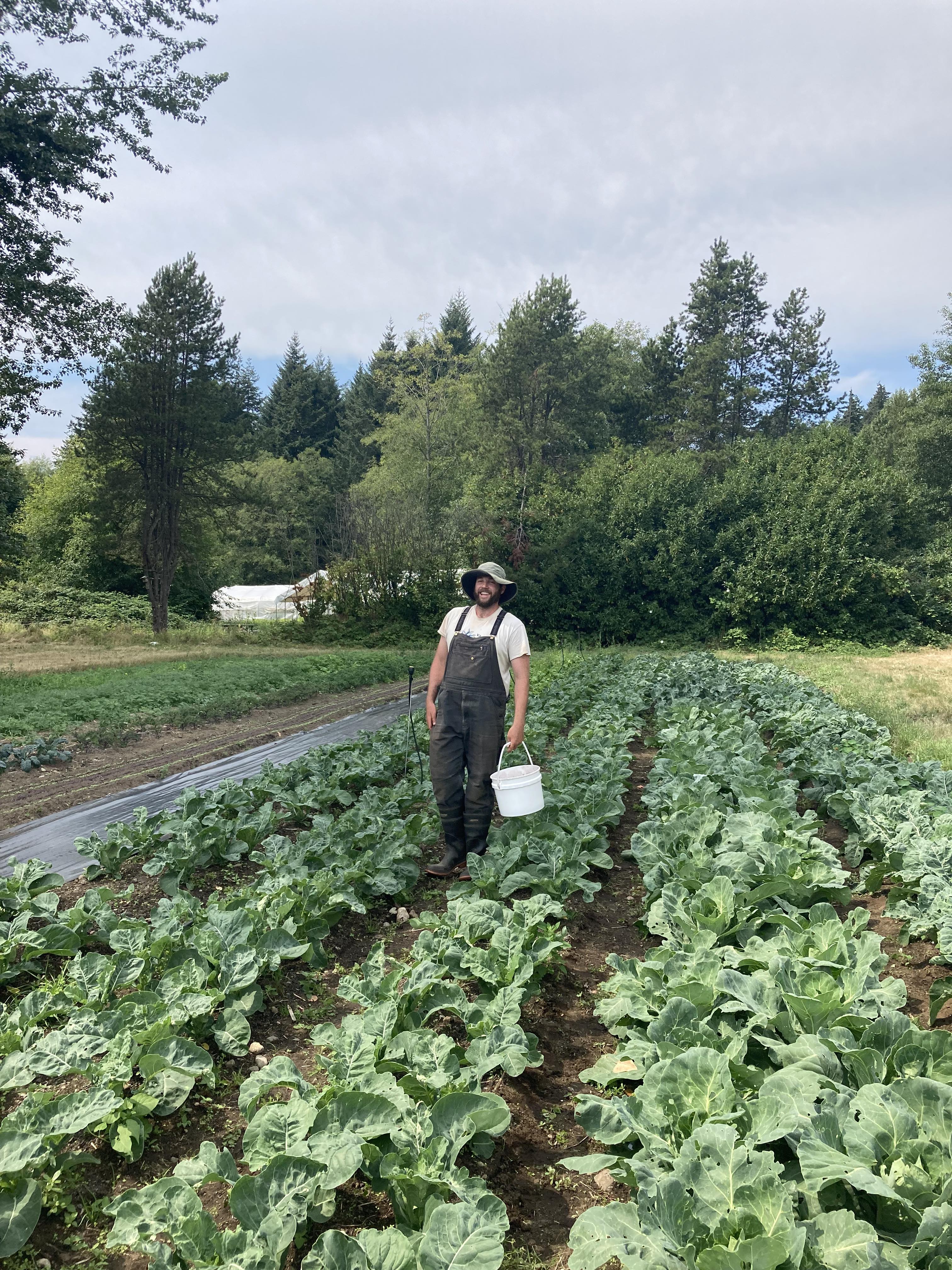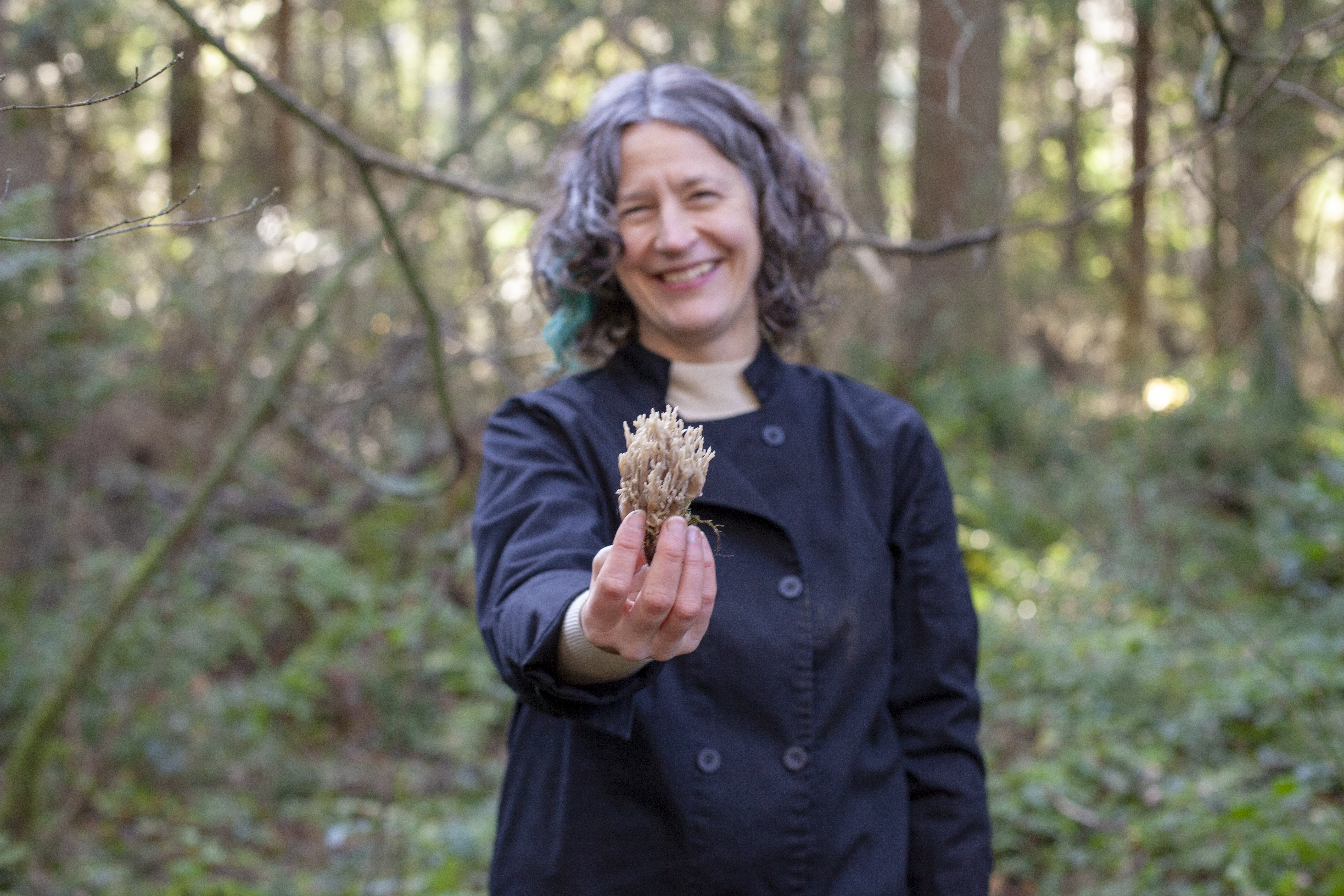I’ll admit that for years I didn’t know how Brussels sprouts grow.
Because I’d worked with ‘regular’ cabbage for years, I assumed these ‘micro cabbages’ (as one of my more pretentious chefs had called them) grew generally the same way. I assumed they popped out of the ground in a gorgeous array of leaves and were plucked from the center when ready. I didn’t believe my coworker when she told me how they actually grew. So, I did what any self-assured Millennial would do and Google’d it. Wow, was I surprised to discover that these tiny beauties grow on an awe-inspiring helical patterned stalk, instead of sitting squat on the ground. Mind blown.
So yes, it is possible someone who works with food every day doesn’t know how it's grown or where it comes from. They don’t know the intense work that goes into farming; to plant a seedling, nurture it, pick it and send it to the consumer in perfect condition. All while battling the elements, the insects and the scourges that always seem to get in the way.
Most cooks get to see produce in such a limited capacity. Our part in the food chain is to buy it, prepare it and send it off to the customer. Honestly, most times without any thought beyond that. We see it in how many liters of onions we must cut that day, or in how long we need to blanch that perfect asparagus spear. But, as professionals, as food ‘gurus’, shouldn’t we know more?
That’s what Tomer Rockman wants to help with and wow, could I have ever used him at the beginning of my career.

Tomer likes to call himself a forager slash farmer. About five years ago, he left a career in computer programming behind him to jump into the deep-end of all things food. He’s the guy you call when you have a great idea for a dish including magnolia blossoms but have no idea how to get them. Not only does he forage for several Vancouver restaurants, but he is also a farmer at the non-profit, ‘The Sharing Farm’ which grows food for restaurants and markets alike. They also provide produce to the Richmond Food bank, which we love.
All that to say- he knows what’s in season and where it’s coming from. Over the last few years he started to realize that wasn’t the case for many of the chefs he was working with. From Chef’s wanting peaches in May, to looking for fresh strawberries in December, “[Some Chefs] don’t know where local food comes from and where seasonality begins. Information isn’t accessible to chefs. We are more and more removed from our food sources, and I just want to help.”
That’s what Tomer’s hoping to do - share his knowledge with cooks so we can all be a little more connected to where our food truly comes from. He’s arranged three different experiences throughout the summer for, “Young cooks/chefs, people who are passionate about sustainable local food and certainly anyone who is farm curious.”
The experiences are aimed at bringing us out of the kitchen and into the field so we can really see and understand what goes on at the farm and where our food comes from. It’s all about connection with Tomer. Connecting the hands that grow the food to the hands that prepare it. That ‘intersection of food and community’ is what drives him.
The first of these experiences is on June 23rd, from 10 am – 1pm where TJ, the farmer of ‘Vive le Veg’ in Delta, BC will take attendees out, show them where the produce comes from, talk about seasonality and finish off with a community building BBQ
The second experience is on July 21st, from 10 am- 1 pm at the “The Sharing Farm” in Richmond, BC. This is the farm Tomer works at, so you can get an even clearer look at his passion for farming.
rces, and I just want to help.”


The third experience will be a ‘Mushroom foraging session’ with Robyn Kort and is set for November. The date will be finalized earlier in the fall, because mushrooms, like peaches and strawberries, don’t always come on the day we need them.
Each experience is $15 per person, which goes directly to the farm you’re visiting, or the forager sharing their knowledge. Tomer’s even looked into transport. He’s partnered with Modo to offer a discount code to anyone who needs to rent a way to get there.
We all know that our food system is going through a rough patch. Whether it’s the precarious nature of climate change, the tariffs from our southern neighbors or the cost of literally everything going up, Chefs have a lot on their plate. But, in the words of my mentor, Ned Bell, “There’s no such thing as cheap food.” If it’s cheap - someone along the supply chain, whether that is the earth, the farmer, the animal or the chef – isn’t being treated fairly.
oved from our food sources, and I just want to help.”
By ‘voting with your wallet’ and supporting local, sustainably run farms, we put money back into our own economy and strengthen our food system. We get to pay these farmers fairly for their labour and stewardship of the earth. Plus, trying freshly picked produce from your local farm is a game changer. Trust me, or better yet, trust Tomer. After all – he's the guy that gets up at four in the morning to pick fresh rose petals before the sun gets a chance to hit them, all before heading to work. “Eating local and getting your food from people who are growing locally is much less hard on the environment. [The] quality of the food is so much better when you get it from the farm. I think when Chefs are using local ingredients it turns on eaters to that as well and that’s super important. It strengthens our economy and strengths our relationship to food, the place and the land.”
So, if you have a chance, please sign up for one of these farm tours and in the words of Tomer Rockman, “Just get outside as often as you can. Each season is different; it always moves at a different pace and the best way to know what’s growing in your area is to go and see it.”
For more information and tickets to the events, email Tomer at: chefsinthefield@gmail.com
For more information on the farms:
Contributed by Chef Stacy Johnston, VP CTS, Sustainability Co-Chair, Chef Poplar Grove
